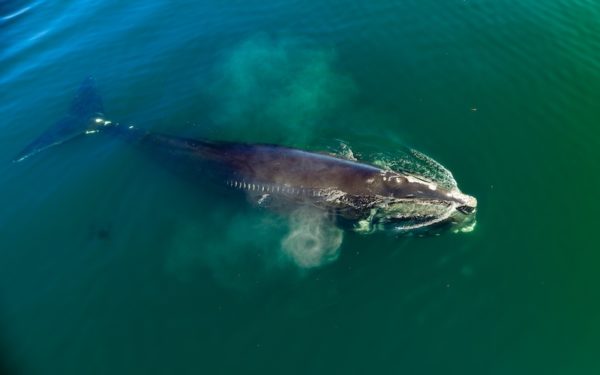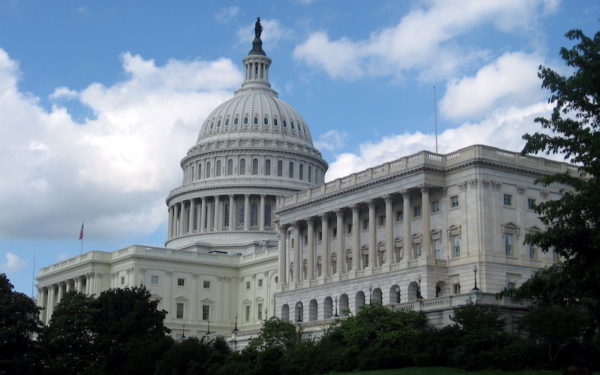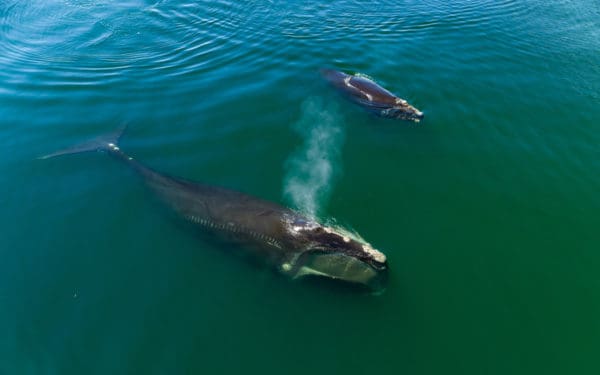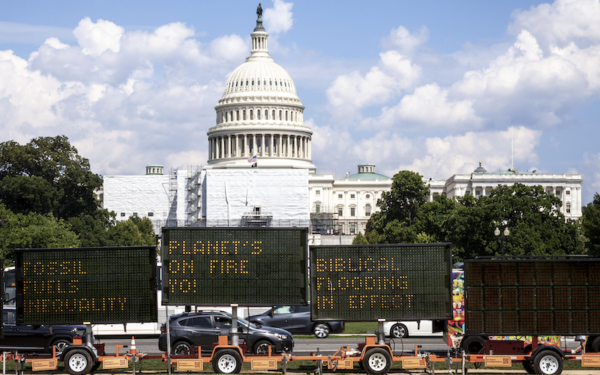Oct 24, 2022
Fifty years ago, Congress adopted the Clean Water Act. This landmark environmental law aimed to clean up waterways that were too polluted for people to swim in or for fish to survive. That law – and those who have enforced it, like my CLF colleagues – has led to many clean water success stories over the… Continue reading The Clean Water Act, Sewage Pollution, and Clamming in Brave Boat Harbor
Oct 06, 2022
In 2022, a one-month-old right whale calf died when hit by a sportfishing boat off the coast of Florida. The calf’s mom, named “Infinity,” was also struck and is believed to have perished. The strike forced the captain to seek out a landing to get his passengers to safety – managing to get his boat onto… Continue reading Take Action: Tell NOAA You Support New Rules to Protect Right Whales
Oct 05, 2022
Why is our ocean overheating? The main is that it is working overtime to protect us. An overheating ocean spells bad news for marine life and humans. But we can help. Here’s ho
Sep 22, 2022
“This bill is a thinly veiled attempt to shut out community input and roll back bedrock environmental protections like the Clean Water Act and the National Environmental Policy Act — effectively green-lighting scores of bad fossil fuel projects and stymying the just and clean energy transition President Biden says he supports,” said CLF President Bradley Campbell.
Sep 15, 2022
As we celebrate the sixth anniversary of the Northeast Canyons and Seamounts Marine National Monument, we are calling for more of our ocean to be permanently protected
Sep 09, 2022
“This decision rejects the lobster industry’s attempts to distract from the overwhelming scientific evidence that entanglements have killed far too many right whales for far too long,” said Erica Fuller, a senior attorney at Conservation Law Foundation. “It took the Fisheries Service five years to finalize a rule that only reduced lethal entanglement risk by 50% when the science shows 90% is needed. This species doesn’t have another five years to wait for the agency to comply with the law.”
Aug 16, 2022
President Biden recently signed this first-of-its-kind climate bill into law – but what does it mean for climate action here at home?
Aug 12, 2022
“The U.S. is long overdue for real action on climate,” said CLF President Bradley Campbell. “This bill will help slash emissions at a time when the impacts of the climate crisis are being felt around the country. We still have work to do at the state and local level to respond to this crisis and bring emissions down to zero by 2050.”
Aug 07, 2022
“It’s no coincidence that this bill is moving forward at a time when large swaths of the country are baking in yet another heatwave,” said CLF President Bradley Campbell. “The IRA will help us slash emissions and bolster the country’s clean energy efforts to respond to the climate crisis at our doorsteps. However, this bill still doesn’t get us to where we need to be, so state action to reduce emissions is going to be critical in the years ahead.”
Jul 29, 2022
“Given the glacial pace of new right whale protections over the last decade, immediately curtailing the second biggest threat to their existence would be a game-changer,” said Erica Fuller, senior attorney at Conservation Law Foundation. “This proposed rule is a major step forward, but there’s a five-month gap in protection south of Martha’s Vineyard and Nantucket that should be addressed. Federal officials must now get these protections in place on the water as quickly as possible and effectively enforce them.”







